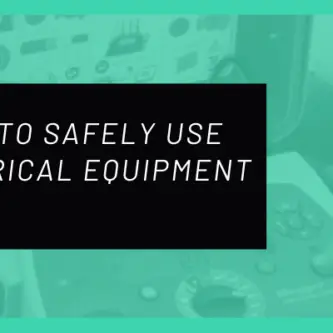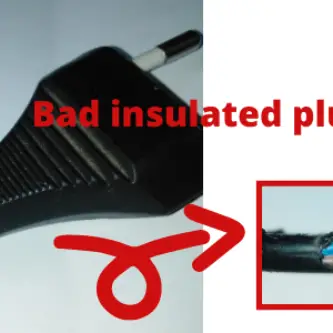Introduction
Electricity is an essential component of modern life. However, it can also be dangerous if not handled properly.
One of the critical safety measures for electrical systems is proper grounding and bonding.
Grounding and bonding ensure that electricity flows safely through an electrical system, preventing electric shock and other hazards.
In this article, we will explore the importance of proper grounding and bonding in electrical systems and the various ways they protect us.
What is Grounding?
Grounding refers to the process of connecting an electrical circuit to the earth. It involves creating a physical connection between the electrical system and the ground through a conductive material, such as a copper wire or metal rod.
Grounding provides a path for electrical current to follow in the event of a fault, such as a short circuit or electrical surge.
The grounding wire carries the excess electrical current to the earth, preventing it from flowing through the body of a person or animal, which could result in electric shock.
Importance of Proper Grounding
Proper grounding is critical to electrical safety. It helps prevent electric shock, protects equipment and appliances from damage, and reduces the risk of electrical fires.
Proper grounding ensures that electrical current flows safely through the electrical system and prevents stray currents from damaging equipment, appliances, or people.
Benefits of Grounding
- Safety: Grounding provides a safe path for electrical current to follow, preventing electric shock and other electrical hazards.
- Equipment Protection: Grounding protects electrical equipment and appliances from damage caused by electrical surges, lightning strikes, and other electrical events.
- Fire Prevention: Grounding helps reduce the risk of electrical fires by preventing electrical current from building up and causing heat or sparks.
What is Bonding?
Bonding refers to the process of connecting two or more conductive materials to create a single electrical path.
Bonding ensures that all conductive materials in an electrical system are at the same electrical potential.
This means that there is no potential difference between the materials, eliminating the risk of electrical arcing or sparking.
Importance of Proper Bonding
Proper bonding is critical to electrical safety. It helps prevent electrical arcing, sparking, and shock by ensuring that all conductive materials are at the same electrical potential.
Bonding also reduces the risk of electrostatic discharge (ESD) in sensitive electrical equipment.
Benefits of Bonding
- Safety: Proper bonding ensures that all conductive materials are at the same electrical potential, reducing the risk of electrical arcing, sparking, and shock.
- Equipment Protection: Bonding protects sensitive electrical equipment from electrostatic discharge (ESD) by ensuring that all conductive materials are at the same electrical potential.
- Compliance: Proper bonding is required by electrical codes and regulations to ensure electrical safety.
Grounding vs. Bonding
While grounding and bonding are closely related, they serve different purposes in electrical safety.
Grounding provides a safe path for electrical current to follow, preventing electric shock and other hazards.
Bonding ensures that all conductive materials in an electrical system are at the same electrical potential, reducing the risk of electrical arcing, sparking, and shock.
Both grounding and bonding are essential for electrical safety and must be done correctly to ensure compliance with electrical codes and regulations.
Conclusion
Proper grounding and bonding are critical to electrical safety. They protect people, equipment, and property from electrical hazards, including electric shock, electrical fires, and equipment damage.
Grounding and bonding must be done correctly to ensure compliance with electrical codes and regulations.
If you are unsure about the grounding and bonding of your electrical system, contact a licensed electrician to assess and correct any issues. Remember, safety always comes first.



